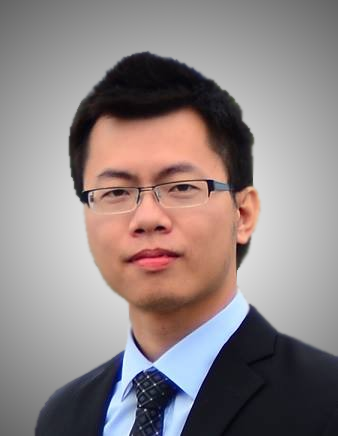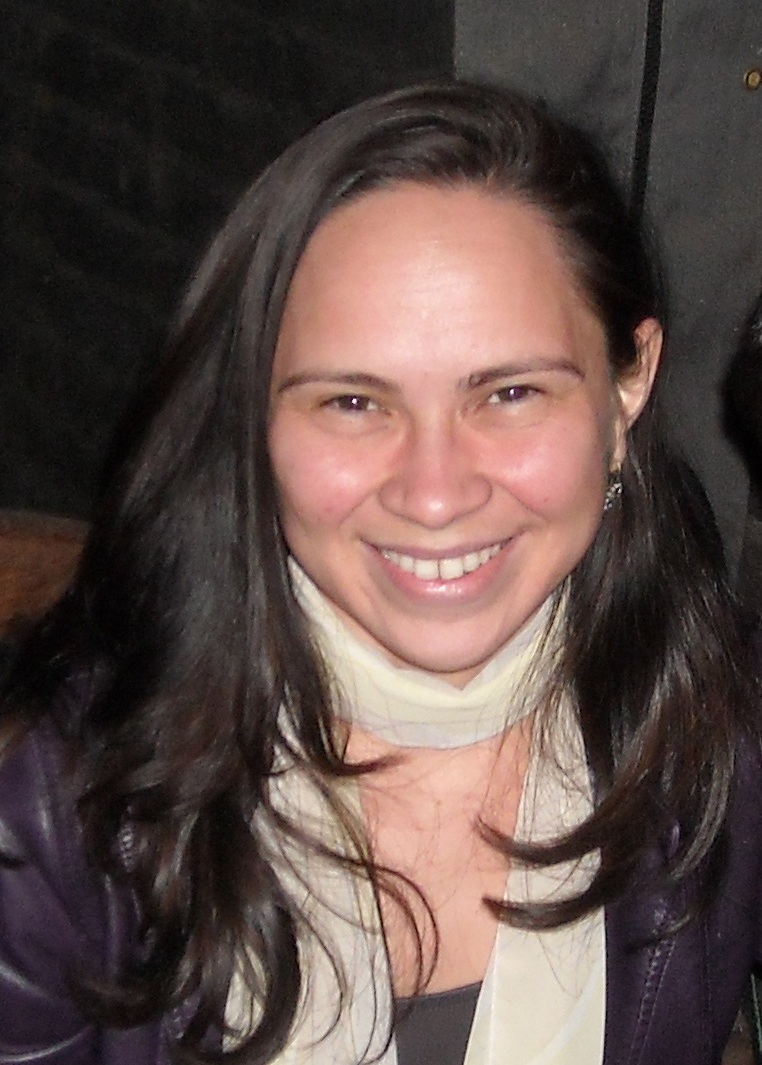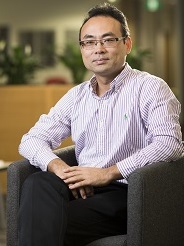MobiArch 2022
Workshop on Mobility in the Evolving Internet Architecture to be held in conjunction with MobiCom 2022
Sydney, Australia, 21st Oct, 2022
Technical Program
9:00 - 10:00 : Welcome Notes and Keynote 1 : "Digital Twins for 5G and Beyond" (Remote presentation)
|
Tuyen (Harry) Tran |
The emulated, software replica of the 5G physical network is referred to as the Digital Twin and it allows for continuous prototyping, testing, assuring and self-optimization of the living network. Hardly a new concept, Digital Twins have a history of prior usage in aeronautics, manufacturing and building design to help simulate complex systems. But for beyond-5G (B5G), it’s still a relatively recent development that’s unquestionably groundbreaking. Although a twin, in real life, does not always perform and respond in the same ways as its counterpart, this one does. That consistency allows continuous prototyping, modeling, and research and probably makes it one of the best, most reliable B5G R&D tutors ever. Through the Digital Twin’s multiple emulation processes, traffic and signal generation functions work in harmony to mirror the actual 5G network in every way. Consequently, the physical system’s behavior can be tested, analyzed, and then accurately predicted under a nearly infinite set of “what if” possibilities. Better yet, all of this can be accomplished quickly, at low cost and whenever needed.
|
Bio: Dr. Tuyen (Harry) Tran is a Principal Inventive Scientist with AT&T Labs Research in Bedminster, New Jersey, USA. Before joining AT&T, Dr. Tran received his B.Eng. degree (honors program) in Electronics and Telecommunications from the Hanoi University of Science and Technology, Vietnam in 2011, the M.Sc. degree in Electrical and Computer Engineering (ECE) from the University of Akron, Ohio, in 2013, and the Ph.D. degree also in ECE from Rutgers University, New Jersey, in 2018. His research interests include wireless communications, mobile cloud computing and network optimization. At AT&T, he has been leading various R&D efforts on Open RAN (O-RAN), network analytics and optimization, low-latency wireless applications, and network digital twin for 5G and beyond. Dr. Tran has been publishing extensively on leading IEEE and ACM journals and conferences on the areas of wireless communications and edge computing. He was the recipient of the Best Paper Award at the 2017 IEEE/IFIP Wireless On-demand Network Systems and Services Conference (WONS) and the 2022 Jack Neubauer Memorial Award from IEEE Vehicular Technology Society recognizing the best systems paper published in the IEEE Transactions on Vehicular Technology. |
|
10:00 - 10:30 : Break
10:30 - 12:00 : Session 1 : RAN and Edge Computing Technologies
Session Chair: Lorenzo Bertizzolo (Apple, USA)
Nishant Budhdev, Arka Maity, Mun Choon Chan and Tulika Mitra, "uvRAN: Efficient 5G Cloud-RAN with User-level Virtualization"
Zao Zhang, Yuning Zhang, Dong Yuan and Wei Bao, "A Two-Level Architecture for Deep Learning Applications in Mobile Edge Computing"
Bihai Zhang, Siping Shi, Dan Wang and Chuang Hu, "EPC: a Video Analytics System with Efficient Edge-side Privacy Control" (Remote Presentation)
Qiang He, "New Challenges at the Edge: Resource, Security and Intelligence" (Invited Talk)
12:00 - 1:30 : Lunch Break
1:30 - 2:15 : Keynote 2 : "Cybersecurity: An Overview Focused on Mobile and Portable Networks" (Remote presentation)
|
Michele Nogueira |
Cyberattacks are constantly ravaging valuable data, wasting time and costly resources, and negatively affecting companies and institutions worldwide. Big, high-profile organizations have suffered the consequences of cyberattacks with a high impact on the organizations, their customers, collaborators, and society. WannaCry and other ransomware software are still a threat that affects computers, encrypts data, and demands ransom payments in cryptocurrency. Another example is sophisticated versions of Distributed Denial-of-Service attacks (DDoS attacks), launched from Internet-connected portable and mobile devices -- such as IP cameras, residential gateways, and baby monitors, that cause major Internet platforms and services to be unavailable to many users around the world. These examples highlight the power and potential of cyberattacks potentialized by mobility, revealing a constant improvement and sophistication in attacking strategies. For sure, cybersecurity is not anymore what it used to be; we are in the era of ubiquitous systems, and we expect more than 75 billion devices or smart things to be connected by 2025. How is academia addressing the sophistication of cyberattacks? Can we anticipate the next moves of attackers to protect our information assets? How could academia benefit from the data generated in the network to create security intelligence and prevent attacks? This talk intends to elicit a discussion around these questions and present an overview of correlated research developed by Dr. Nogueira’s research team and future directions in these topics.
|
Bio: Michele Nogueira is an Associate Professor in the Computer Science Department at the Federal University of Minas Gerais (UFMG), Brazil. She received her doctorate in Computer Science from the University Pierre et Marie Curie – Sorbonne Université, France. She was on sabbatical leave at Carnegie Mellon University, USA (2016-2017). Her research interests include wireless networks, security, and dependability. She has worked on providing resilience to self-organized, cognitive and wireless networks through adaptive and opportunistic approaches. Dr. Nogueira was one of the pioneers in addressing survivability issues in self-organized wireless networks; the work “A Survey of Survivability in Mobile Ad Hoc Networks” is one of her prominent scientific contributions. She has been a recipient of Academic Scholarships from the Brazilian Government in her undergraduate and graduate years; and of international grants such as the ACM SIGCOMM Geodiversity program. She has served as Associate Technical Editor for IEEE Communications Magazine. She serves as chair of the IEEE ComSoc Internet Technical Committee. She is an ACM and IEEE Senior Member. |
|
2:15 - 3:15 : Session 2 : Mobile Radio Access and Mobile Computing Technologies
Session Chair: Dr. Dong Yuan (University of Sydney, Australia)
Anatolij Zubow, Piotr Gawlowicz and Falko Dressler, "Less is More: Towards low-latency Communication trough Cross-technology Communication" (Remote presentation)
Weiling Zheng, "SwingLoc: Acoustic Indoor Localization Leveraging Doppler Effects via Wearable Computing" (Remote presentation)
Hiep Vo, Mingjian Tang, Xi Zheng and Shui Yu, "BI-GAN: Batch Inversion Membership Inference Attack on Federated Learning"
3:15 - 3:30 : Break
3:30 - 4:15 : Keynote 3 : "Smart IoT Sensing for Ageing Well: Research Activities and Future Directions"
|
Michael Sheng |
Worldwide, the population is aging due to increasing life expectancy and decreasing fertility. The significant growth in older population presents many challenges to health and aged care services. Over the past two decades, the Internet of Things (IoT) has gained significant momentum and is widely regarded as an important technology to change the world in the coming decade. Indeed, IoT will play a critical role to improve productivity, operational effectiveness, decision making, and to identify new business service models for social and economic opportunities. Indeed, with the development of low-cost, unobtrusive IoT sensors, along with data analytics and artificial intelligence (AI) technologies, there is now a significant opportunity to improve the wellbeing and quality of life particularly of our older population. In this presentation, we will overview some related research projects and also discuss several research directions.
|
Bio: Michael Sheng is a full Professor and Head of School of Computing at Macquarie University, Sydney, Australia. Before moving to Macquarie University, he spent 10 years at School of Computer Science, the University of Adelaide. From 1999 to 2001, he also worked at University of New South Wales as a visiting research fellow. Prior to that, he spent 6 years as a senior software engineer in industries. Michael Sheng’s research interests include the Internet of Things (IoT), service computing, big data analytics, machine learning, pervasive computing, and Web technologies. He is ranked by Microsoft Academic as one of the Most Impactful Authors in Services Computing (ranked Top 5 All Time) and in Web of Things (ranked Top 20 All Time). Michael Sheng is the recipient of AMiner Most Influential Scholar in IoT (2018), ARC (Australian Research Council) Future Fellowship (2014), Chris Wallace Award for Outstanding Research Contribution (2012), and Microsoft Research Fellowship (2003). He is the Vice Chair of the Executive Committee of the IEEE Technical Community on Services Computing (IEEE TCSVC), the Associate Director of Macquarie University Smart Green Cities Research Center, and a member of the ACS (Australian Computer Society) Technical Advisory Board on IoT. |
|
4:15 - 5:35 : Session 3 : Performance Analysis and Assessment of Mobile Technologies
Session Chair: Dr. Yipeng Zhou (Macquarie University, Australia)
Joshua Tabor, Shenghong Dai, Varun Sreenivasan and Suman Banerjee, "muCity: A Miniatured Autonomous Vehicle Testbed"
Behnaz Soltani, Venus Haghighi, Adnan Mahmood, Quan Z. Sheng and Lina Yao, "A Survey on Participant Selection for Federated Learning in Mobile Networks"
Amirmohammad Pasdar, Young Choon Lee, Seok-Hee Hong and Tongliang Liu, "MAPS: A Dataset for Semantic Profiling and Analysis of Android Applications " (Best Paper Award)
Haitao Liu, Xinyi Zhang, Xiang Zhou, Tianyun Zhang, Yanbiao Li, Zhenyu Li and Gaogang Xie, "When 360° Video Meets 5G: A Measurement Study of Delay in Live Streaming" (Remote presentation)


